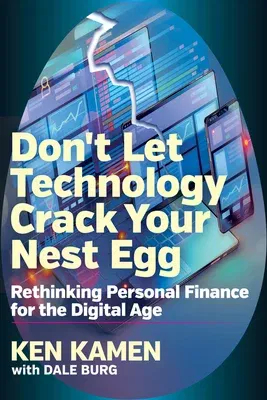When Ken Kamen launched his financial services career, technology had
just begun to transform how we earn, spend, save, and invest
money--along with every other aspect of our lives. Today, nearly four
decades later, we have access to boundless possibilities with only a few
keystrokes. Technology empowers us by making countless tasks easier and
speedier to accomplish, but it also compounds our human tendencies to
act impulsively and emotionally, both of which are enemies of long-term
financial security. Computers and search engines have lulled us into
complacency, making it easy to find just-in-time answers to all our
questions. The unexpected consequence has been a decline in the desire,
and even the skills, to plan ahead. In Don't Let Technology Crack Your
Nest Egg, Kamen presents startling facts that reveal how our reliance on
technology poses growing economic dangers. For example, our addiction to
our screens leads us to squander our most precious resource: time.
Aspirational consumption has become such a budget-breaker that 60% of
millennials say their #1 money-saving plan is to stop following social
media. The incremental growth of cashless transactions makes us
increasingly lax about tracking our spending. And although computers
provide us access to a cornucopia of information, many people carelessly
put their trust in "knowledge" from unreliable sources. In the real
world, we guard our wallets and lock our doors to protect ourselves from
unknown threats. But in the virtual world, we are cavalier about
allowing motivated parties to invade our privacy and track our behavior,
manipulate our buying decisions, and sway our opinions. We trust that
simplistic, computer-generated solutions are comprehensive enough to
provide carefully considered recommendations for our own particular
needs. We allow our cyberself to wander the internet, compromising our
identity and acting as an unsupervised agent on our behalf in our
interactions and transactions with strangers. Kamen explores the
wide-ranging consequences these new forces can have on our financial
futures. This book will be cautionary and eye-opening both to older
readers with a nest egg to protect and to younger readers just building
one--to anyone, in fact, wanting financial insight into navigating a
world that is rapidly being transformed by technology.

